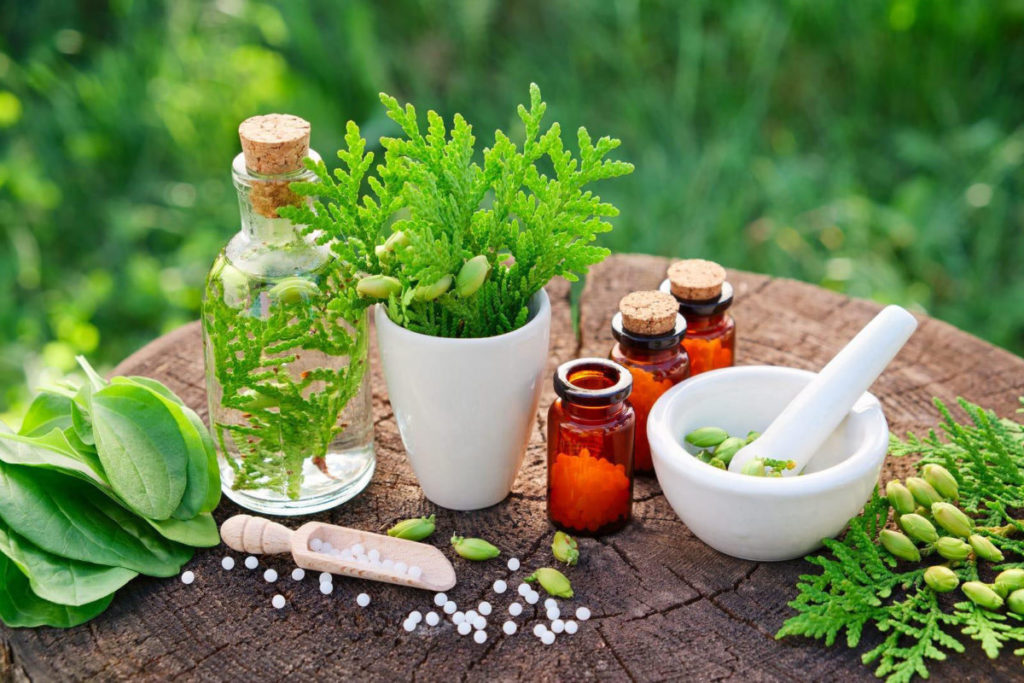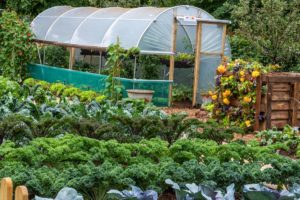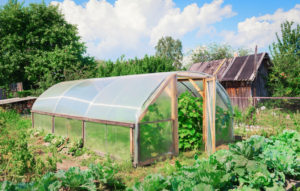Unlock the power of nature’s medicine cabinet with our comprehensive guide to growing and using herbs for natural health on the grid.
Whether you’re looking to improve your digestion, boost your immune system, or simply add some flavor to your cooking, we’ve got you covered.
From expert advice on choosing the right herbs for your needs to step-by-step instructions for growing and harvesting them, this guide is the ultimate resource for anyone looking to embrace a healthier, more sustainable lifestyle through the use of natural herbs.
Choose the right herbs for your needs
There are many herbs that are suitable for natural health remedies, so it’s important to choose the right herbs for your specific needs. Consider what health issues you want to address, and look for herbs that are known to have a positive effect on those issues.
Different herbs have different properties and may be more effective for different health issues.
For example, if you’re looking to improve your digestion, you might consider herbs like ginger, peppermint, or chamomile, which are known for their soothing and anti-inflammatory properties.
If you’re looking to boost your immune system, you might consider herbs like echinacea, which is known for its antiviral and antibacterial properties.
To choose the right herbs for your specific needs, start by identifying the health issues you want to address.
Do you have digestive problems, pain, or stress?
Once you have a clear idea of what you want to address, research the herbs that are known to have a positive effect on those issues.
Look for herbs that have been studied scientifically and have a strong reputation for effectiveness.
When selecting herbs, it’s also important to consider the quality of the herbs and the form in which they are available.
Look for herbs that are organic and free of contaminants.
Consider the form of the herbs as well – does it come in a tea, capsule, or tincture?
Choose the form that best fits your needs and preferences.
By taking the time to research and select the right herbs for your specific needs, you can ensure that you’re using the most effective natural health remedies to support your well-being.
Start small
Don’t try to grow and use too many herbs at once. Start with a few and see how they work for you. This will help you avoid overwhelming yourself and ensure that you’re using the herbs safely and effectively.
When starting out with herbalism, it’s important to avoid the temptation of trying to grow and use too many herbs at once.
This can lead to overwhelming yourself and potentially using the herbs unsafe.
Instead, begin with a few herbs that you’re interested in and see how they work for you.
This will allow you to gain experience and knowledge about the specific needs of each herb, such as their light, water, and temperature requirements.
You’ll be able to observe how they grow and thrive, and make any necessary adjustments to create a successful growing environment.
By starting small and gradually increasing the number of herbs you grow, you can ensure that you’re using the herbs safely and effectively, and make the most of your herbalism journey.
Research the herbs you choose
Before you start using any herbs, research them thoroughly to ensure that they are safe and effective for your health needs. Look for information from reputable sources, such as scientific studies and medical professionals.
Before using any herbs, it’s important to conduct thorough research to ensure their safety and effectiveness for your health needs.
Reliable sources such as scientific studies and medical professionals can provide valuable insights into the potential benefits and risks of specific herbs.
Scientific studies offer empirical evidence-based information about the bioactive compounds and their effects on human health.
Medical professionals, such as naturopaths and herbalists, can provide practical guidance on how to use herbs safely and effectively.
They can help you identify potential drug interactions or contraindications that may arise from using herbs.
By consulting reputable sources, you can make an informed decision about which herbs to use, how to prepare them, and the appropriate dosage for your individual needs.
This due diligence can help prevent adverse effects and maximize the potential benefits of herbal medicine.
Grow your own herbs
Growing your own herbs is a great way to ensure that you have a steady supply of fresh, high-quality herbs. Choose herbs that are easy to grow and maintain, such as basil, mint, and chamomile.
Growing your own herbs is a brilliant idea to have a perpetual supply of fresh, superior quality herbs at your disposal.
For beginners, it’s best to opt for herbs that are simple to grow and maintain, such as basil, mint, and chamomile.
These herbs are incredibly hardy and can thrive in a range of environments, making them ideal for both indoor and outdoor cultivation.
Basil is a popular choice for its distinctive flavor and versatility in cooking, while mint is a great option for its refreshing taste and ability to be used in both sweet and savory dishes.
Chamomile, on the other hand, is a calming herb that can be used in teas or infusions to promote relaxation and well-being.
To ensure the best possible growth, make sure to provide your herbs with ample sunlight, adequate water, and nutrient-rich soil.
Keep in mind that herbs like basil and mint can be quite prolific, so be prepared to harvest them regularly to encourage continued growth.
With proper care and attention, you’ll be enjoying an endless supply of fresh, fragrant herbs in no time.
Use herbs in teas and infusions
Herbs can be prepared as teas or infusions, which are simple to make and can be a great way to incorporate herbs into your daily routine. Steep dried or fresh herbs in hot water to make a soothing, flavorful drink.
Herbs can be prepared as teas or infusions, which are simple to make and can be a great way to incorporate herbs into your daily routine.
To make a soothing and flavorful drink, steep dried or fresh herbs in hot water.
Start by selecting the herb of your choice, such as peppermint, chamomile, or lemon balm.
Fresh herbs can be used if they are available, but dried herbs will also work well.
Pour boiling water over the herbs and let them steep for a few minutes, depending on the strength of flavor you desire.
For a more potent drink, steep the herbs for a longer time, such as 5-7 minutes.
For a milder drink, steep the herbs for a shorter time, such as 3-5 minutes.
You can sweeten the tea with honey or sugar if desired, and add milk or lemon to taste.
Enjoy your delicious and healthy herbal tea!
Make herbal remedies
Herbal remedies can be made by combining herbs with other ingredients, such as honey, vinegar, or oil, to create a tincture, syrup, or salve. These remedies can be used to treat a variety of health issues, such as colds, sore throats, and skin irritations.
Herbal remedies can be made by combining herbs with other ingredients like honey, vinegar, or oil to create a tincture, syrup, or salve.
These remedies can be used to treat a variety of health issues such as colds, sore throats, and skin irritations.
For example, you can make a soothing cough syrup by combining dried herbs like elderberry, hyssop, and thyme with honey and vinegar.
This syrup can help to relieve symptoms of a common cold, like coughing and sore throats.
Similarly, you can create a healing salve by combining herbs like calendula, plantain, and comfrey with oil.
This salve can be applied topically to soothe skin irritations like rashes, burns, and wounds.
Herbal tinctures can be made by infusing herbs like ginger, ginkgo, and licorice in vinegar or alcohol, which can then be used to treat a range of health issues, such as digestive problems and cognitive function.
By combining herbs with other ingredients, you can create a range of effective and natural remedies for various health issues.
Use herbs in cooking
Many herbs, such as basil and rosemary, can be used in cooking to add flavor to dishes and provide additional health benefits. Use herbs in stir-fries, salads, soups, and other meals to improve your health and enjoy a delicious meal.
Using herbs in cooking not only adds delicious flavor to your dishes, but it also provides numerous health benefits.
Basil, for example, is rich in vitamins A and K, as well as antioxidants that can help protect against inflammation and oxidative stress.
Rosemary, on the other hand, is a natural digestive aid and can help improve memory and cognitive function.
Herbs like parsley and cilantro are high in vitamins C and K, respectively, which are essential for maintaining healthy skin, bones, and immune function.
To incorporate herbs into your cooking, consider adding them to stir-fries, salads, soups, and other meals.
For a tasty and nutritious stir-fry, try pairing basil with garlic and ginger for a flavorful and antioxidant-rich sauce.
Add a sprinkle of rosemary to your soups and stews for a boost of immune-supporting compounds.
And for a delicious and healthy salad, combine parsley, cilantro, and cherry tomatoes with a lemon vinaigrette dressing.
Incorporating herbs into your cooking is not only easy, but it’s also a delicious and effective way to improve your health.
By adding a sprig of basil or a pinch of rosemary to your meals, you’ll be providing your body with a wealth of vitamins, minerals, and antioxidants that will leave you feeling nourished and energized.
So don’t be afraid to experiment with different herbs and their various uses in cooking – your taste buds and your health will thank you!]
Incorporating herbs into your cooking is a simple yet powerful way to enhance the flavor and nutritional value of your meals.
With just a few sprigs of basil, a pinch of rosemary, or a handful of parsley, you can add a burst of flavor and a wealth of health benefits to your dishes.
For a flavorful and nutritious stir-fry, try pairing basil with garlic and ginger for a sauce that is both delicious and packed with antioxidants.
Basil is rich in vitamins A and C, as well as potassium and magnesium, which can help support healthy blood pressure and immune function.
If you’re looking for a dish that is both flavorful and comforting, consider using rosemary as a main ingredient.
This herb is known for its calming effects and can help reduce stress and improve sleep quality.
Its strong, pungent flavor pairs well with hearty meats like lamb or beef, and its antioxidant properties can help protect against chronic diseases like heart disease and cancer.
Parsley is a versatile herb that can be used in a variety of dishes, from salads to soups to stews.
It is high in vitamins A, C, and K, as well as minerals like potassium and iron, making it an excellent addition to any meal.
Parsley is also a natural breath freshener and can help soothe indigestion and other digestive issues.
With so many health benefits and culinary uses, it’s no wonder that herbs like basil, rosemary, and parsley have been around for thousands of years as staples in many cuisines around the world.]
Many herbs, such as basil and rosemary, have been used for centuries as staples in cuisines around the world due to their impressive health benefits and versatility in cooking.
Basil, for example, is known for its anti-inflammatory properties and can help alleviate symptoms of joint pain and inflammation.
Its sweet and pungent flavor pairs well with a variety of dishes, including soups, salads, and stir-fries.
Rosemary, on the other hand, is known for its calming effects and can help reduce stress and improve sleep quality.
Its strong, pungent flavor pairs well with hearty meats like lamb or beef, and its antioxidant properties can help protect against chronic diseases like heart disease and cancer.
Parsley, a popular herb in Mediterranean and Middle Eastern cuisine, is rich in vitamins A, C, and K, as well as minerals like potassium and iron.
It has been shown to improve digestion, reduce inflammation, and support healthy bone growth.
When used in cooking, these herbs not only add flavor but also provide a wealth of health benefits.
To incorporate them into your diet, try adding fresh basil leaves to salads or using dried rosemary in stews and roasted meats.
Parsley can be used as a garnish or added to sauces and dips for an extra burst of flavor and nutrition.
By incorporating these herbs into your cooking, you can elevate your meals and support your overall health and well-being.
Make herbal tinctures
Herbal tinctures are concentrated liquid extracts of herbs that can be taken internally or used topically. To make a tincture, combine dried or fresh herbs with alcohol and let it sit for several weeks to allow the herbs to steep. Strain the liquid and take it as needed.
Herbal tinctures are a powerful and versatile form of herbal medicine.
To make a tincture, combine dried or fresh herbs with alcohol, such as vodka or rum, and let it sit for several weeks to allow the herbs to steep.
This process, called maceration, allows the beneficial compounds in the herbs to be extracted into the alcohol, creating a concentrated liquid extract.
Once the steeping period is complete, strain the liquid through a cheesecloth or a fine-mesh sieve to remove the solids.
The resulting liquid is the tincture, which can be taken internally or used topically, depending on the desired effect.
When taken internally, herbal tinctures can be used to support a variety of health concerns, such as anxiety, insomnia, and digestive issues.
They can also be used to boost the immune system and promote overall well-being.
Topical application of the tincture can be used to treat skin conditions such as acne, eczema, and wounds.
It’s important to note that the quality of the tincture depends on the quality of the herbs used and the skill of the maker.
Look for tinctures made with organic, sustainably sourced herbs and prepared according to traditional methods.
Always follow the recommended dosage on the label and consult with a healthcare professional before using herbal tinctures, especially if you have a medical condition or are taking medication.
With proper use and care, herbal tinctures can provide a natural and effective solution to a variety of health concerns.
Try herbal first aid
Herbs can be used in first aid to treat a variety of minor injuries and ailments. For example, calendula can be used to treat burns, while arnica can be used to reduce inflammation and swelling.
Herbs can be a valuable addition to your first aid kit, providing natural and effective treatment options for a variety of minor injuries and ailments.
One such herb, calendula, has antimicrobial and anti-inflammatory properties that make it an excellent choice for treating burns.
When applied topically to burns, calendula can help reduce the risk of infection and promote healing.
Another herb, arnica, is known for its ability to reduce inflammation and swelling.
Arnica can be used to treat bruises, sprains, and other injuries that result in swelling and pain.
By applying arnica to the affected area, you can help reduce swelling and promote healing.
Both calendula and arnica are easy to find in most health food stores or online, and can be used in the form of teas, tinctures, or topical ointments.
By incorporating these herbs into your first aid kit, you can provide yourself and your loved ones with natural, effective, and gentle treatment options for a variety of minor injuries and ailments.
Learn about herbal safety
While herbs can be safe when used properly, it’s important to be aware of potential side effects and interactions with medications. Consult with a healthcare professional before taking herbs if you have any medical conditions or take medications regularly.
When using herbs, it’s essential to exercise caution and consult with a healthcare professional to avoid potential side effects and drug interactions.
While herbs can be safe and effective when used properly, they can also cause adverse reactions, especially if taken in large quantities or mixed with other medications.
For instance, some herbs like St.
John’s Wort can interfere with blood thinners and other medications, while others like Ginkgo biloba can increase the risk of bleeding.
Certain herbs can interact with medications used to treat depression, diabetes, and other medical conditions.
Before taking any herbal supplements, it’s important to discuss your medical history and current medications with a healthcare professional to ensure safe and effective use.
This will help minimize the risk of potential side effects and ensure that the herbs complement your health regimen.
Want More? Dive Deeper Here!
Hey there! If you’re the type who loves going down the rabbit hole of information (like we do), you’re in the right spot. We’ve pulled together some cool reads and resources that dive a bit deeper into the stuff we chat about on our site. Whether you’re just killing time or super into the topic, these picks might just be what you’re looking for. Happy reading!






